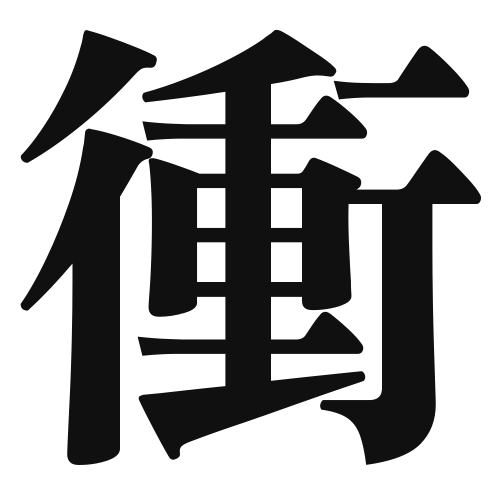1. Overview of Meaning
The kanji “衝” (shō) primarily means “to collide” or “to strike.” It conveys the idea of impact or a sudden forceful encounter.
2. Formation and Radical
Formation of the Kanji: The kanji “衝” is a phonetic-ideographic character (形声文字). It combines the radical for “clothing” (衤) with a phonetic component that suggests its pronunciation.
Radical: The radical of “衝” is 衤, which relates to clothing or fabric, indicating a connection to the physical world and interactions.
3. Examples of Usage
Common Words and Phrases: Some frequently used words that include “衝” are:
- 衝突 (shōtotsu) – conflict, collision
- 衝撃 (shōgeki) – impact, shock
Example Sentences in Daily Conversation:
- 車が衝突した。 (The car collided.)
- そのニュースは衝撃的だった。 (The news was shocking.)
4. Synonyms and Antonyms
Similar Kanji: A kanji with a similar meaning is “打” (da), which means “to hit” or “to strike,” but it often implies a more deliberate action rather than a collision.
Opposite Kanji: An antonym could be “和” (wa), which means “harmony” or “peace,” representing the absence of conflict or collision.
5. Cultural and Historical Background
Connection to Japanese Culture: The concept of “衝” is significant in various aspects of Japanese culture, particularly in martial arts and traditional practices where the idea of impact and force is essential.
Proverbs and Idioms: One relevant proverb is “衝動に駆られる” (shōdō ni karareru), which means “to be driven by impulse,” highlighting the suddenness associated with the kanji.
